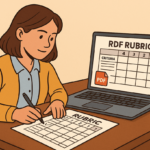Online carer certificate eligibility encompasses specific criteria determining who can access digital certification programs for care giving professionals. These programs provide essential credentials for individuals in healthcare support roles, including personal care assistants, aged care workers, and disability support providers. Eligibility requirements vary based on certification level, intended work environment, and regulatory compliance needs within different healthcare sectors. The carer certificate online system streamlines the certification process by offering flexible learning options that accommodate working professionals’ schedules while maintaining rigorous educational standards. Digital platforms have transformed how care giving credentials are obtained, making professional development more accessible to individuals across diverse geographic locations and personal circumstances.
Qualification criteria basics
Primary eligibility begins with age requirements, typically requiring applicants to be at least 18 years old for most certification programs. Educational prerequisites may include completion of secondary education or equivalent qualifications, though some entry-level programs accept mature-age candidates with relevant life experience. Work experience in healthcare or related fields often strengthens applications but rarely represents mandatory requirements for initial certification levels.
Medical fitness assessments verify that candidates can safely perform physical care giving tasks without compromising their health or care recipients. These assessments include basic health screenings and may require medical clearance for specific conditions. NextClinic often facilitate these health evaluations through streamlined online consultation processes that expedite the certification pathway. Criminal background checks represent standard requirements across most jurisdictions, ensuring care recipients’ safety through thorough vetting procedures.
Application process steps
The digital application process begins with online registration through approved certification platforms that verify initial eligibility criteria. Applicants upload required documentation through secure portals that protect sensitive personal information while enabling efficient processing. Automated verification systems cross-reference submitted documents with official databases to confirm authenticity and accuracy. Assessment scheduling follows document verification, with online testing options available for theoretical components and practical assessments arranged at approved locations. Many programs offer flexible scheduling that accommodates applicants’ work commitments and personal obligations. Progress tracking systems provide real-time updates on application status and notify candidates of required actions or missing documentation.
Verification standards
- Identity confirmation through multiple authentication methods, including digital verification and biometric checks
- Qualification validation through direct contact with educational institutions and training providers
- Employment history verification involving reference checks with previous employers in healthcare or related sectors
- Professional conduct assessment examining any previous disciplinary actions or complaints in care giving roles
- Health screening validation, ensuring medical clearances meet current regulatory standards for healthcare workers
- Continuing education compliance demonstrating a commitment to maintaining current knowledge and skills
Renewal procedures
Certificate renewal maintains professional standing through demonstrated continuing education and accumulation of practical experience. Most certifications require annual or biennial renewal with specific professional development hour requirements. Online platforms track completed training modules and automatically generate renewal notifications before certificate expiration dates. Renewal eligibility includes maintaining clean criminal background checks and current medical clearances throughout the certification period. Professional conduct standards must be upheld with any complaints or disciplinary actions that could affect renewal approval. Updated training requirements reflect changing industry standards and emerging best practices in care giving methodologies. Advanced certification pathways become available after completing initial credentials and accumulating specified practice hours in approved healthcare settings.









